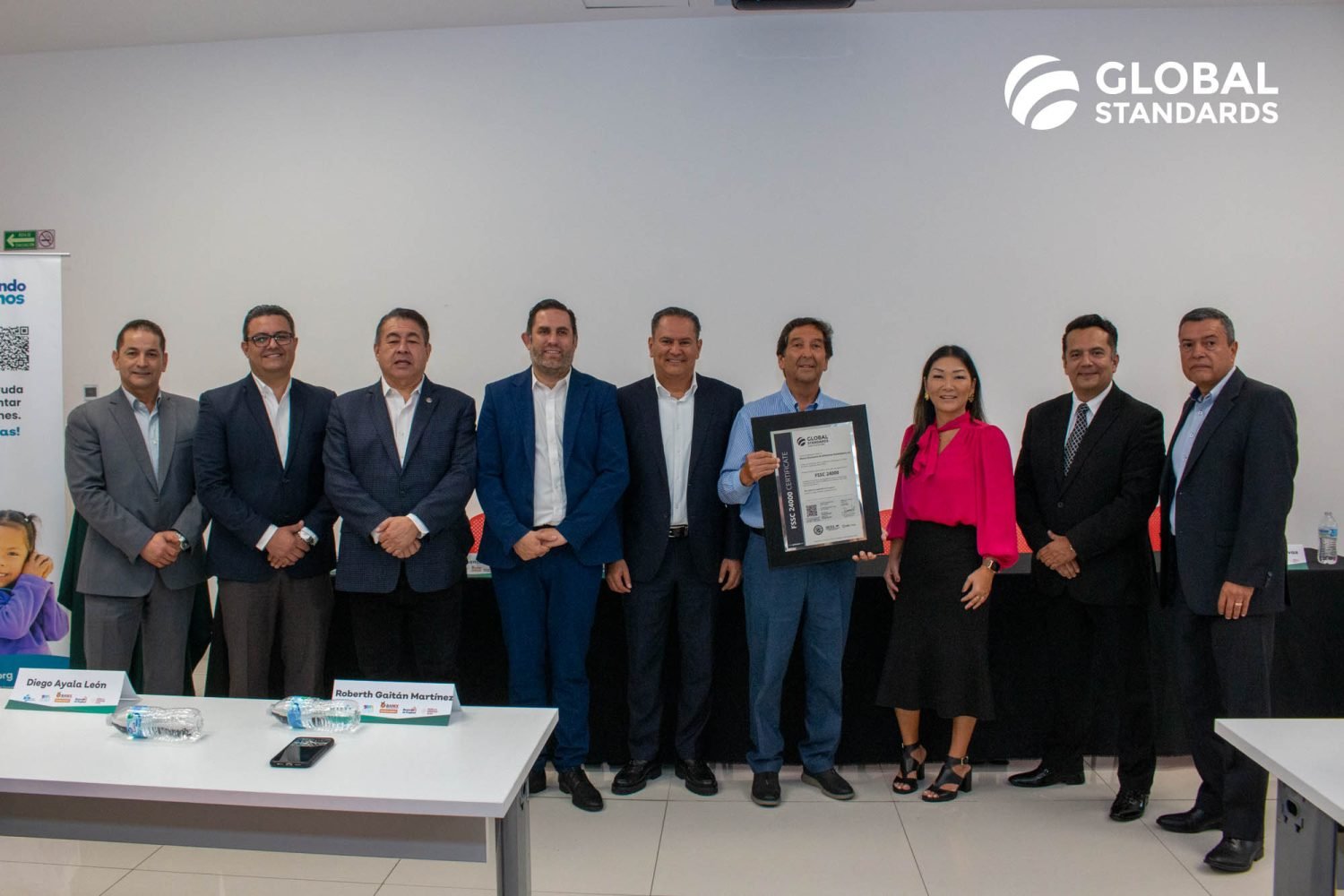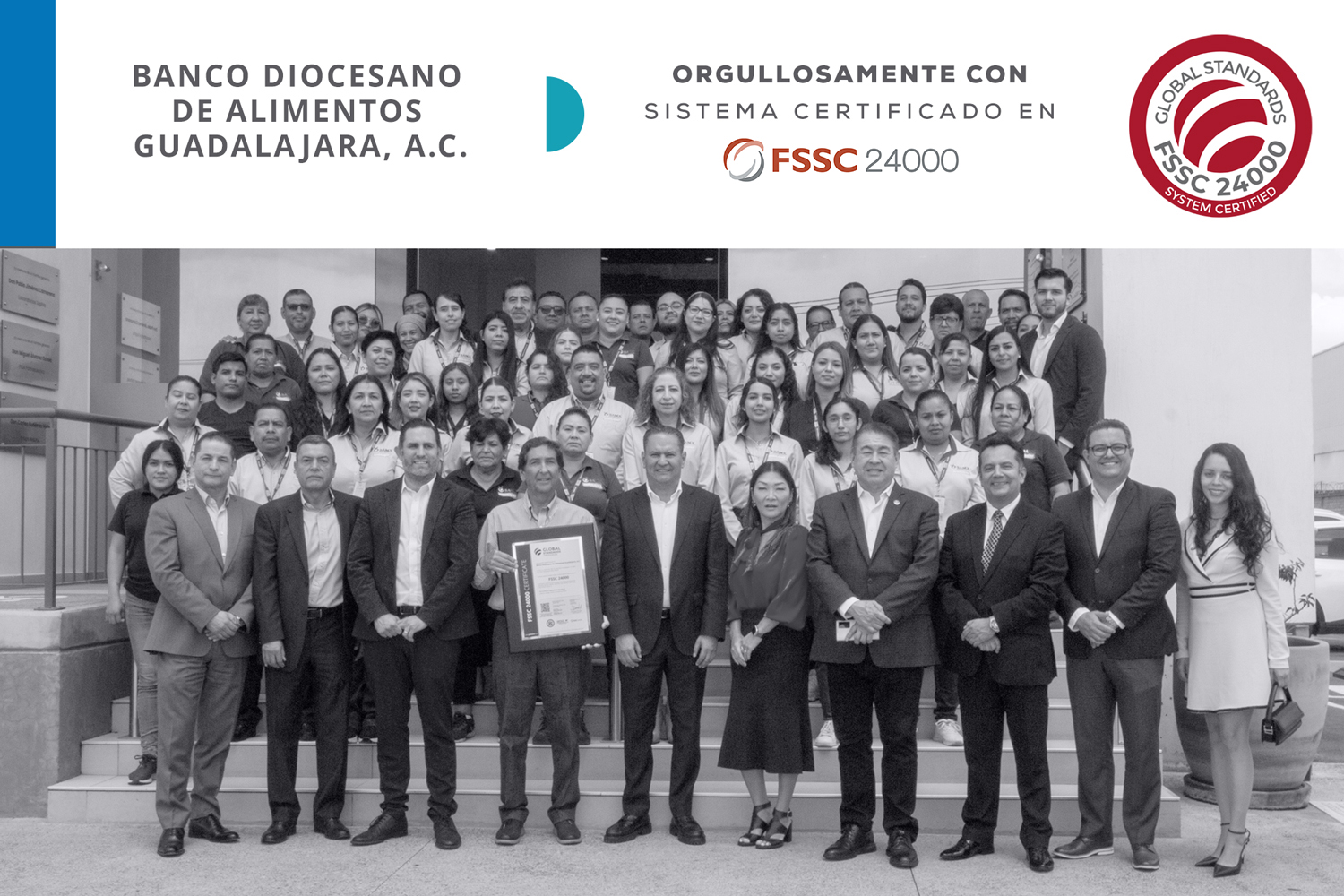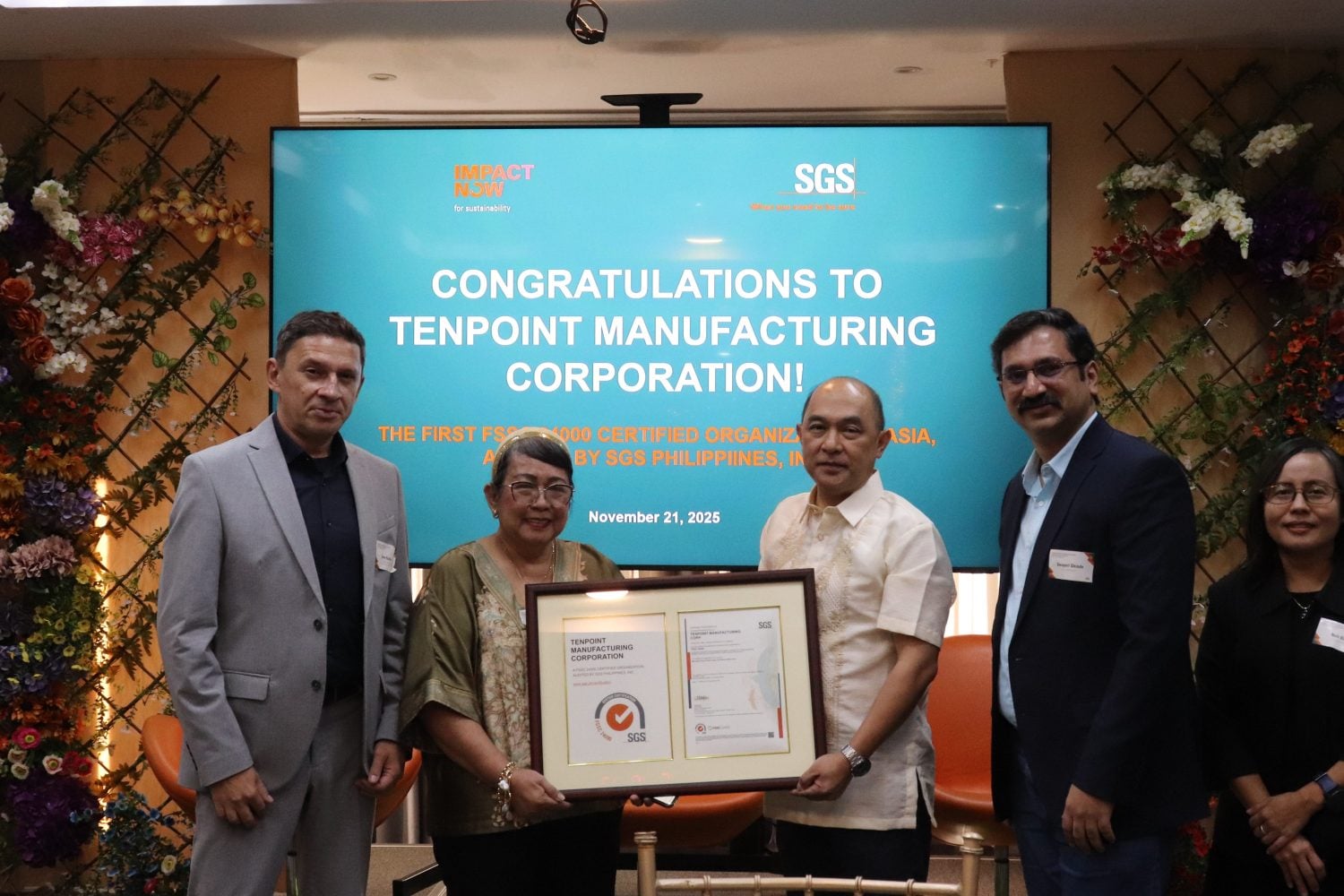In May 2024, Foundation FSSC welcomed the first certificate awarded to an organization for the FSSC 24000 Scheme Version 1.0 for Social Management Systems.
FSSC Certification Body Global Standards S.C. in Mexico issued the accredited certificate to Banco Diocesano de Alimentos Guadalajara, A.C. (Mexico) for food storage, handling, and distribution.

Banco Diocesano de Alimentos Guadalajara is a non-profit, NGO based on volunteers that, since 2001, has managed the collection, quality control, storage, and distribution of surplus food, with the aim of delivering it to healthcare centers and, through them, to the people who need it.
Global Standards sat down with the organization to discuss their journey to FSSC 24000 Certification.
Below, you can watch the full video from Global Standard and read an interview with Ricardo Romo Rivas, Director General of Banco Diocesano de Alimentos Guadalajara.
How did Banco Diocesano de Alimentos Guadalajara start?
The Banco Diocesano de Alimentos Guadalajara is the first Food Bank in Latin America. It was established in Mexico over 32 years ago with the idea and vision of its founder, Ricardo Bona Echevarría, alongside several individuals who also had warehouses in the wholesale market.
They noticed that they received premium-quality products, but if, for any reason, they did not sell them, they categorized them differently the next day because new products had already arrived. And so it went on until the older products were spoiled and had to be discarded. However, at the same time, they saw the conditions for so many people currently scavenging through the trash bins.
And that’s where the methodology of rescuing food to help the food-insecure population comes from. That’s why we go to field producers, we go to the food market, we go to self-service stores, and meet with food producers so that we can take advantage of those products that they can no longer sell, and the people we serve can consume them with dignity and excellent health.
At what point did you realize that you wanted to achieve Certification?
During the 32 years, the Board of Directors of the Banco Diocesano de Alimentos Guadalajara was restructured. Today, it is presided over by Engineer José Luis González Íñigo, who invited 38 other business council members from Jalisco to join the efforts of the Food Bank at that time. We had other facilities that the Food Bank occupied for many years, but they were not the most suitable or convenient; hence, the part where the Council, led by Engineer José Luis, aimed to construct facilities that are appropriate for operations and, above all, for safe food handling. From there, it all began.
We started restructuring the Food Bank, establishing our strategic planning, and also seeking growth for our personnel. We have been working on this for the past three years. Initially, we obtained ISO 9001:2015 certification from Global Standards, and of course, in February of last year, we received our recertification. Then, Global Standard informed us about the new Scheme from the FSSC family, which is FSSC 24000.
Global Standards motivated us to seek this certification in the best interest of our organization. Today, we are very pleased to be the first in the world to hold FSSC 24000 certification, but that was not really the goal. Our objective is to fulfill our mission, and this certification is a means to pursue continuous improvement for all of us who work at the Banco Diocesano de Alimentos Guadalajara.
Why did you choose to work with Global Standard to obtain Certification?
Global Standards has the experience and the recognition. We have received extraordinary support from them for many years, since the initial process of obtaining ISO 9001:2015 certification three years ago, and there is no other for us.
Banco Diocesano de Alimentos felt supported by their professionalism and level of knowledge. It was an opportunity for us to learn from a Certification Body that knows so much about the industries in which they work. Global Standards shared best practices for risk management within the organization, and allowed us to guide ourselves to apply permanent improvement in our daily processes and operations.
What is next for Banco Diocesano de Alimentos Guadalajara as a Certified FSSC 24000 organization?
Well, we continue to advance; our work is to assist more people. Today, nearly 1,200,000 individuals in the state of Jalisco face food insecurity. The Banco Diocesano de Alimentos has been growing over the past five years with the new Council, and today, we serve more than 135,000 individuals across 81 municipalities in the state of Jalisco.
We are not obligated to continue growing and improving for ourselves, but it is essential for us in operations because to us, a lost cherry tomato is a sacrilege. We are dedicated to rescuing food. In our operations, we want to be the most efficient, primarily because it will support people who are in vulnerable situations.
These Certifications, like FSSC 24000, allow us to understand our strengths and opportunities that we must address through auditing as we identify areas for improvement.
We must address these areas to become increasingly more efficient and effective in our work. We are already undergoing a process of strategic planning for staff training. All managers are currently undergoing training, whether through diplomas or postgraduate studies, focusing on the operational aspect.
Many people from here remain with us, with the mission to develop their skills to better serve the vulnerable population in which we find ourselves. The Banco Diocesano de Alimentos is also perceived as a space for growth. And of course, to generate income to support their families and needs. Therefore, this certification requires us to continue seeking improvements in the conditions of all those collaborating with the Food Bank.
We are very pleased with this certification, it gives us a position; we are a non-profit civil association, but this does not exempt us from carrying out our daily operations with quality.

Explore our insights
-
Insights Webinar FSSC 22000: Hygienic Transport of Food Through Effective Tank Cleaning
Past event
|
3 December, 2025
-
Webinar: Action Plan Towards COP30 - Sustainable Food Systems
Past event
|
6 November, 2025
-
Insights Webinar FSSC 24000: Make with Care, Certify for Trust
Past event
|
22 October, 2025



